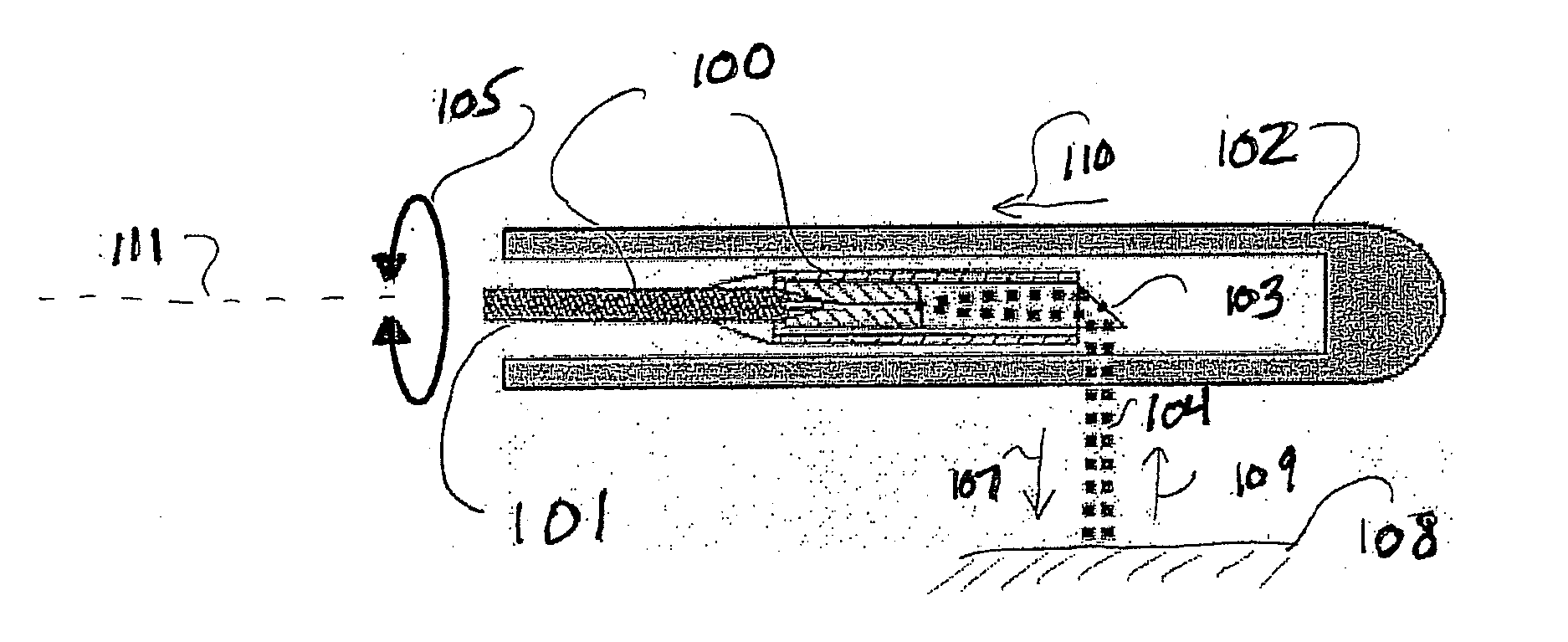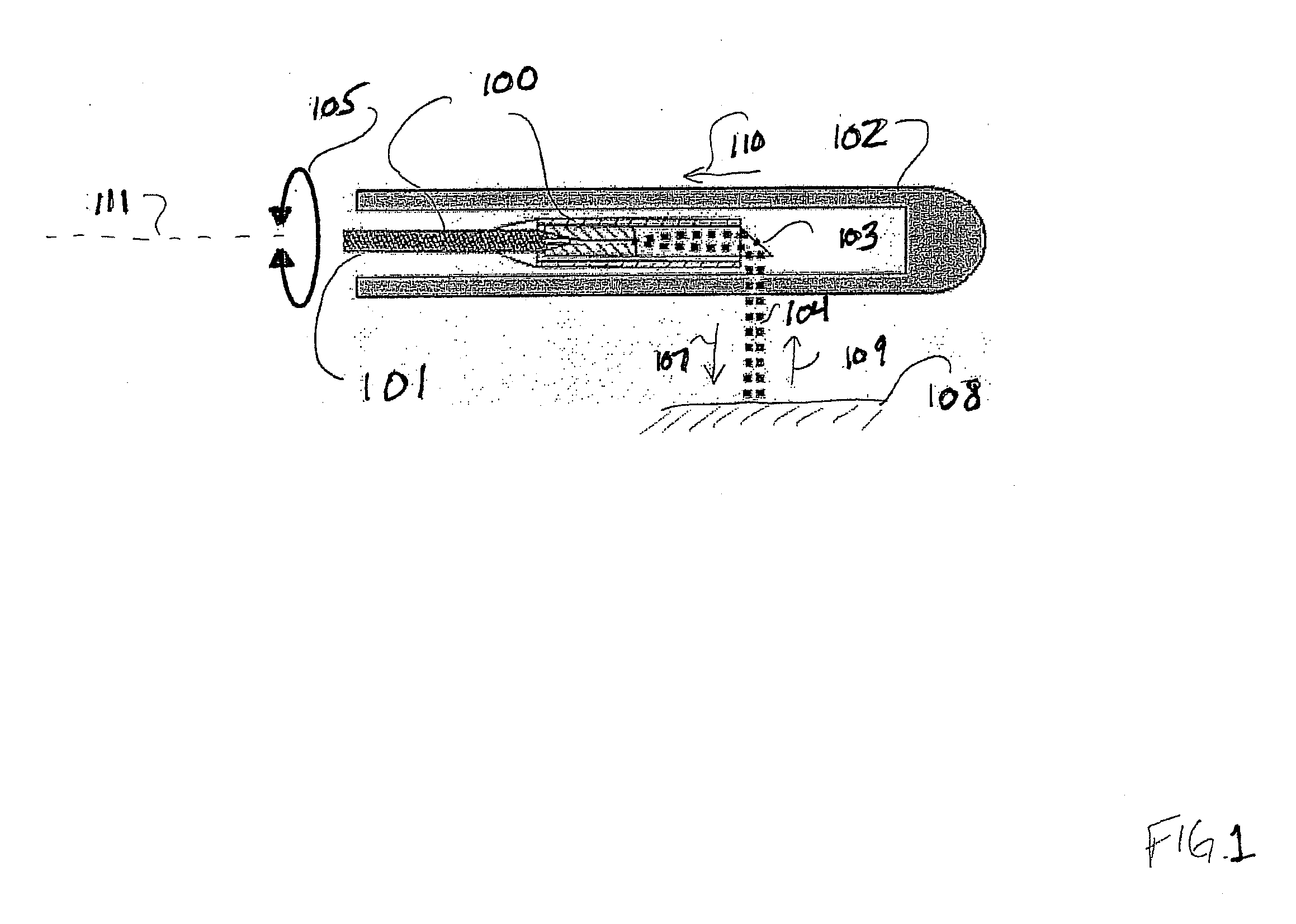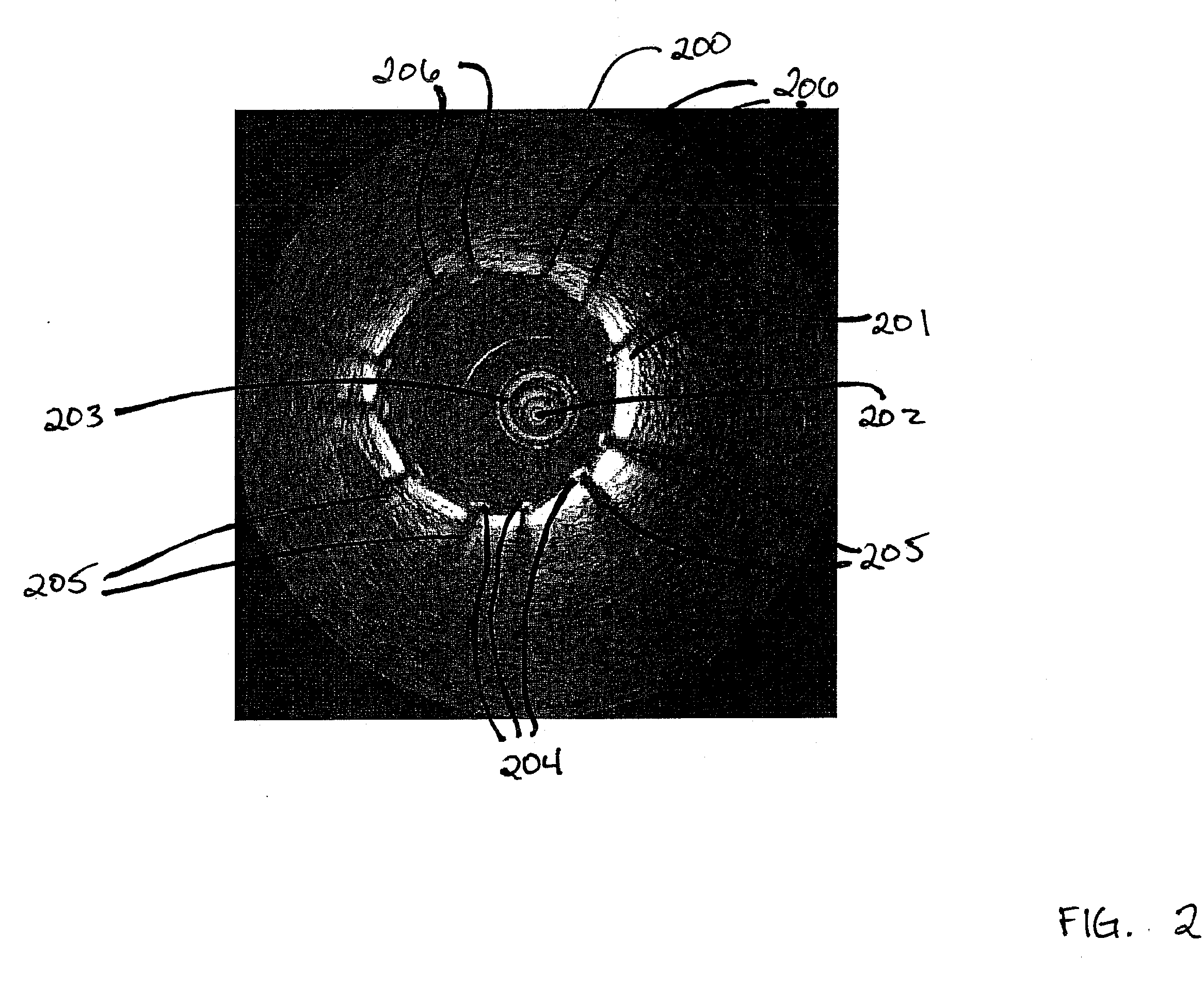Method and Apparatus for Inner Wall Extraction and Stent Strut Detection Using Intravascular Optical Coherence Tomography Imaging
a technology inner wall extraction, which is applied in the field of optical coherence tomography imaging techniques, can solve the problems of affecting the magnitude of nih after stent implantation, requiring a significant time investment, and manual processing was not always accurate, so as to achieve automatic and accurate determination
- Summary
- Abstract
- Description
- Claims
- Application Information
AI Technical Summary
Benefits of technology
Problems solved by technology
Method used
Image
Examples
Embodiment Construction
[0020]FIG. 2 shows a cross section image 200 showing an artery 201, which is for example a coronary artery in which a stent has been inserted. Image 200 is illustratively an image obtained via OCT scanning using optical or infrared light transmitted by sensor 202 that has been inserted into artery 201 using catheter 203. As one skilled in the art will recognize, the relatively bright portion of the image represents the wall of artery 201. FIG. 2 also shows cross section images of the struts 204 of a stent that has been inserted into the artery. Shadows, such as shadows 205, result when the stent blocks the optical or infrared signal originating from sensor 202. As discussed above, it is desirable to be able to locate the struts 204 in the image accurately but prior manual methods for identifying such struts were not accurate and typically took extensive time to perform. Accordingly, the present inventors have invented a method and apparatus for automatically identifying the struts i...
PUM
 Login to View More
Login to View More Abstract
Description
Claims
Application Information
 Login to View More
Login to View More - R&D
- Intellectual Property
- Life Sciences
- Materials
- Tech Scout
- Unparalleled Data Quality
- Higher Quality Content
- 60% Fewer Hallucinations
Browse by: Latest US Patents, China's latest patents, Technical Efficacy Thesaurus, Application Domain, Technology Topic, Popular Technical Reports.
© 2025 PatSnap. All rights reserved.Legal|Privacy policy|Modern Slavery Act Transparency Statement|Sitemap|About US| Contact US: help@patsnap.com



